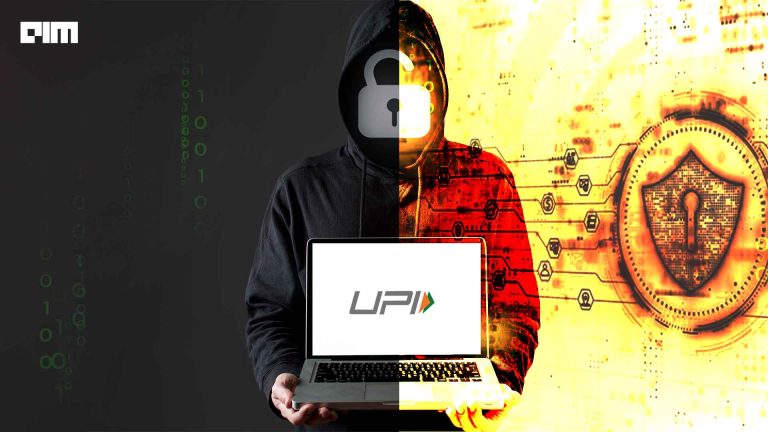Cybersecurity has been one of the hottest professions ever since the Y2K crisis. From cyber-attacks to security vulnerabilities, ever since the dawn of the millennium, organisations across the globe have been consistently targeted. This scenario has given way to a huge opportunity for professionals willing to enter the security domain.
As private companies and governments make a move in the direction of enhancing their cybersecurity stance, the requirement for skilled security experts has climbed. The opportunity is also massive for aspirants because there is a massive gap between skilled professionals and available jobs, and not enough people to fill them.
A report from Cybersecurity Ventures estimates that there will be 3.5 million unfilled cybersecurity jobs by 2021. Industry body NASSCOM also evaluated that India alone will need 1 million cybersecurity professionals by 2020.
There are a ton of different roles within cybersecurity which cover solving unique problems and having a real-world impact. For every hack, there are millions of transactions which are conducted safely and securely online, and whether that is you interacting with your bank, ordering something from your favourite store or just safely chatting with your friends, there is a lot of great positive work that cybersecurity professionals do. When the work is done well, nobody ever hears about it, but if it is done poorly, everyone will hear about it in the news.
When you are beginning a career in cybersecurity, you have to ensure that you analyse the various job roles that the industry offers. There are job profiles like security architect, security engineer, security analyst, consultant, CISOs, etc., which are well known. Plus, in recent years, we have seen importance being given to cryptographers and other crypto analyst security roles. With the talent crunch, cybersecurity professionals take away an average annual remuneration of around INR 7 to 8 Lacs for freshers to INR 20 to 24 Lacs for professionals with 2 to 6 years of experience.
The Beginning
When you are entirely new to the domain, there are many job roles you can opt for. These include cybersecurity manager, IT security analyst, network security engineer, cybersecurity analyst, security architect, and of course Chief Information Security Officer (CISO).
So, how do you make it in the field of cybersecurity? There is no designated path which you need to follow to get into the profession, and a lot of people do not take the traditional path. While a four-year engineering degree in network engineering, systems engineering, software engineering can certainly help, that is not the only way to make it in cybersecurity. Certifications, conferences, hackathons, bug bounty programs and networking can help you get into great cybersecurity roles also.
Regardless of the fact that you have an engineering/software degree, one thing is clear- cybersecurity requires a dedicated learning effort with a hands-on approach, not the traditional theoretical system of learning.
If you are a professional working in an ecosystem of software programming, data, networks etc., then you can make the most out of that to brush up your skills and knowledge. That would help you big time when you make a transition to the cybersecurity industry.
Even if you feel that you are not too technically qualified, you can still pursue a career in cybersecurity — this industry has room for everyone. Every cybersecurity person has a different story, has a different background or an educational history. It is a diverse community of professionals, and therefore it is all about driving your thirst for knowledge, learning more, and that could be challenging for some people.
The Hands-On Learning Process
The process of constantly updating yourself with advanced technologies, protocols, security trends, vulnerabilities, and threat intelligence is a daunting task. But it is crucial to safeguard data, systems, software, intellectual property, trade secrets and other assets from cybercriminals and malicious actors, which take many forms including ransomware, malware, social engineering, crypto-mining, and phishing attacks.
On the one hand, traditional degrees in software engineering are well respected; it is not just about these degrees alone. Certifications and hands-on training are also crucial to develop the right skills. Participating in hackathons and bug bounty programs come in very handy to be in tune with the technologies used in hacks and breaches, and how to detect them. Also, along with all the domain knowledge, security aspirants also require strong fundamentals of data networks and operating systems, as well as programming language skills such as Java and Python.
This requires constant learning and relearning, which traditional degrees are not providing in many cases. On the other hand, a specialised course can undoubtedly tackle the issue given the syllabus is continuously optimised.
Your Cybersecurity Talent Will Be Respected
While security engineers with college degrees are already rare in the skills market, a lack of formal cybersecurity degrees is not impacting the talent pool. There are ethical hackers across the globe who are getting hired into full-time roles even though they may not possess engineering degrees. The reason is that such ethical hacking experts possess better hands-on skills than most traditional IT security managers. The challenge of being an ethical hacker consistently requires such people to get involved in hackathons and bounty programs that hunt for security vulnerabilities and software bugs.
So, if you want to get into ethical hacking, you can utilise the various penetration testing operating systems like Kali OS or ParrotOS, and if your interest lies in web application penetration testing, you can work on web tools websites that permit hacking for ethical purposes. More importantly, you can join ethical hacking certification that trains you for bug hunting, penetration testing and all the other things needed. Such platforms and tools are gaining prominence because traditional techniques like code scanning tools and single-source analysis only give an incomplete view of risk and exposure. In fact, they usually fail to maintain with the ever-evolving advanced tactics of hackers.
Why Credentialing Is Still Important For A Cybersecurity Career
While becoming an expert security professional does not require a formal education process, credentialing is still important to prove one’s skillset. Credentialing is the process of vetting the qualification of licensed professionals, organisational members, and evaluating their background and legitimacy.
In the domain of cybersecurity, there are a number of ways a professional can take to prove his qualifications for the job. This includes college or university accreditation, vendor-sponsored training, and association/organisation-sponsored certification. While a master’s degree can come in handy to attain a good job in cybersecurity, professionals can also get certified from organisations like ISC2, ISACA, and Offensive Security.
There are many institutes available that run classes completely focused on ethical hacking and cybersecurity — they even come with full-time and part-time formats. Also, specialised institutes train you in such a way that you also manage to write your certification exams.
Enrolling a course not only gives learners the required skills but also strengthens the resume; after all; your resume has to demonstrate what skills you have. A specialised cybersecurity course will give you an edge over others.
Let’s analyse one of such well-known certifications. Now, if you want to enter the exciting and lucrative world of ethical hacking, then certification like Offensive Security Certified Professional (OSCP) may be the right choice for you. OSCP primarily is an ethical hacking certification by Offensive Security that trains people on penetration testing methodologies and the utilisation of the tools with the Kali Linux distribution.
In India, you can enrol in this specialised OSCP program in association with HackerU, Israel’s Premier Cyber Security Training Provider under the title certificate- Master Certificate in Cyber Security (Red Team) with HackerU. The goal is to train and make ready the next generation of offensive cybersecurity experts. From a unique hands-on approach, live cyber-attacks are simulated in the classroom, training the students to detect and prevent potential security breaches and attacks. After graduation, students will be able to perform a variety of penetration tests, to secure the databases of government bodies, military forces, corporations, and organisations of all sizes and types.
Also Read: The State Of Cybersecurity In India: 2020



















































































